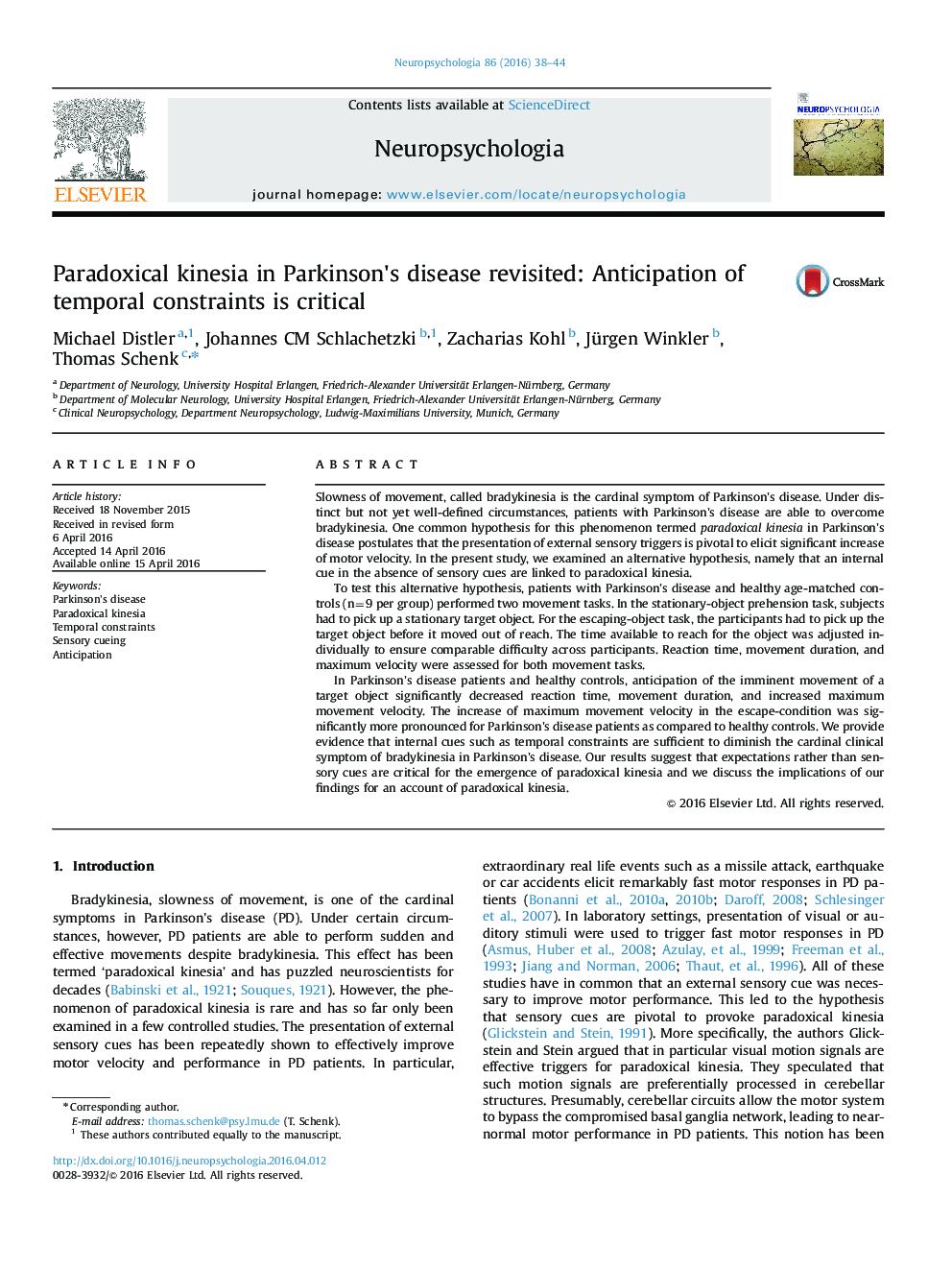| Article ID | Journal | Published Year | Pages | File Type |
|---|---|---|---|---|
| 7319020 | Neuropsychologia | 2016 | 7 Pages |
Abstract
In Parkinson's disease patients and healthy controls, anticipation of the imminent movement of a target object significantly decreased reaction time, movement duration, and increased maximum movement velocity. The increase of maximum movement velocity in the escape-condition was significantly more pronounced for Parkinson's disease patients as compared to healthy controls. We provide evidence that internal cues such as temporal constraints are sufficient to diminish the cardinal clinical symptom of bradykinesia in Parkinson's disease. Our results suggest that expectations rather than sensory cues are critical for the emergence of paradoxical kinesia and we discuss the implications of our findings for an account of paradoxical kinesia.
Related Topics
Life Sciences
Neuroscience
Behavioral Neuroscience
Authors
Michael Distler, Johannes CM Schlachetzki, Zacharias Kohl, Jürgen Winkler, Thomas Schenk,
